African American Music In Global Perspective
University of Illinois Press (Series Editors: Portia K. Maultsby and Mellonee Burnim)
This series is devoted to the publication of studies of African American musics in the United States as well as treatises on African and African derived music traditions across the globe. Books in the series will foreground the cultural perspectives of the primary creators and performers of the music, highlighting the voices of African Americans, in particular. Series editors especially welcome submissions which address underrepresented topics in the scholarly literature, including but not limited to: biographies and autobiographies, religious and popular music, women in music, music criticism, aesthetics, migration, regional studies and globalization. In addition, publications that serve as definitive markers in the history of African American music scholarship will be considered for reprint. Proposals characterized by rich cultural and musical analysis are welcome from all fields, including ethnomusicology, cultural history, anthropology, and African American and African Diaspora studies.
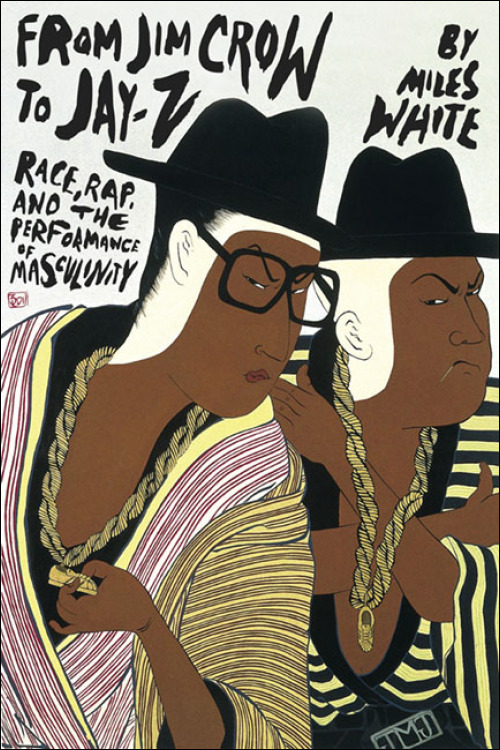
by Miles White
This multilayered study of the representation of black masculinity in musical and cultural performance takes aim at the reduction of African American male culture to stereotypes of deviance, misogyny, and excess. Broadening the significance of hip-hop culture by linking it to other expressive forms within popular culture, Miles White examines how these representations have both encouraged the demonization of young black males in the United States and abroad and contributed to the construction of their identities.
From Jim Crow to Jay-Z traces black male representations to chattel slavery and American minstrelsy as early examples of fetishization and commodification of black male subjectivity. Continuing with diverse discussions including black action films, heavyweight prizefighting, Elvis Presley's performance of blackness, and white rappers such as Vanilla Ice and Eminem, White establishes a sophisticated framework for interpreting and critiquing black masculinity in hip-hop music and culture. Arguing that black music has undeniably shaped American popular culture and that hip-hop tropes have exerted a defining influence on young male aspirations and behavior, White draws a critical link between the body, musical sound, and the construction of identity.
Learn more about From Jim Crow to Jay-Z at University of Illinois Press
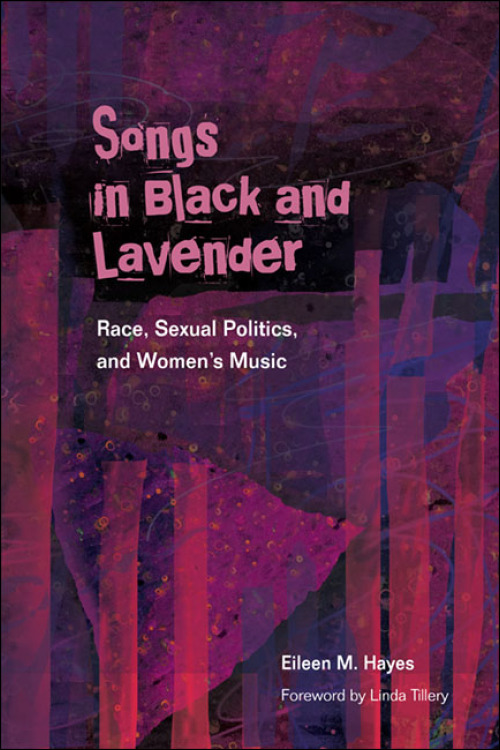
by Eileen M. Hayes
Drawing on fieldwork conducted at eight women's music festivals, Eileen M. Hayes shows how studying these festivals--attended by predominately white lesbians--provides critical insight into the role of music and lesbian community formation. She argues that the women's music festival is a significant institutional site for the emergence of black feminist consciousness in the contemporary period. Hayes also offers sage perspectives on black women's involvement in the women's music festival scene, the ramifications of their performances as drag kings in those environments, and the challenges and joys of a black lesbian retreat based on the feminist festival model. With acuity and candor, longtime feminist activist Hayes elucidates why this music scene matters. Veteran vocalist, percussionist, producer, and cultural historian Linda Tillery provides a foreword.
Learn more about Songs in Black and Lavender at University of Illinois Press
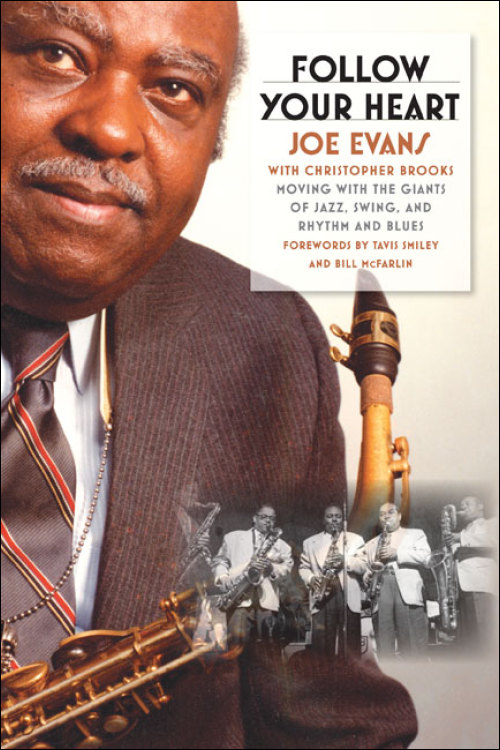
by Joe Evans with Chris Brooks
Detailing the career of Joe Evans, Follow Your Heart chronicles the nearly thirty years that he spent immersed in one of the most exciting times in African American music history. An alto saxophonist who between 1939 and 1965 performed with some of America's greatest musicians, including Louis Armstrong, Cab Calloway, Charlie Parker, Jay McShann, Andy Kirk, Billie Holiday, Bill "Bojangles" Robinson, Lionel Hampton, and Ivory Joe Hunter, Evans warmly recounts his wide range of experience in the music industry. Readers follow Evans from Pensacola, Florida, where he first learned to play, to such exotic destinations as Tel Aviv and Paris, which he visited while on tour with Lionel Hampton. Evans also comments on popular New York City venues used for shaping and producing black music, such as the Apollo Theater, the Savoy, Minton's Playhouse, and the Rhythm Club.
Revealing Evans as a master storyteller, Follow Your Heart describes his stints as a music executive, entrepreneur, and musician. Evans provides rich descriptions of jazz, swing, and rhythm and blues culture by highlighting his experiences promoting tracks to radio deejays under Ray Charles's Tangerine label and later writing, arranging, and producing hits for the Manhattans and the Pretenders. Leading numerous musical ventures that included a publishing company and several labels--Cee Jay Records (with Jack Rags), Revival, and Carnival Records--Evans remained active in the music industry even after he stopped performing regularly. As one of the few who enjoyed success as both performer and entrepreneur, he offers invaluable insight into race relations within the industry, the development of African American music and society from the 1920s to 1970s, and the music scene of the era.
Learn more about Follow Your Heart at University of Illinois Press
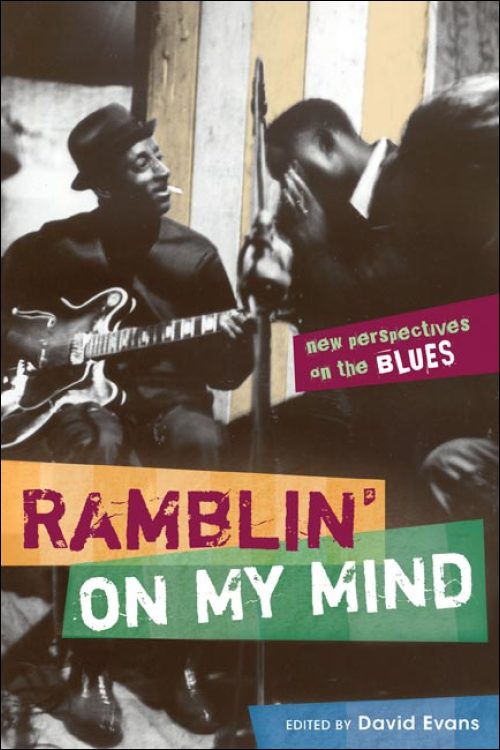
ed. David Evans
This compilation of essays takes the study of the blues to a welcome new level. Distinguished scholars and well-established writers from such diverse backgrounds as musicology, anthropology, musicianship, and folklore join together to examine blues as literature, music, personal expression, and cultural product. Ramblin' on My Mind contains pieces on Ella Fitzgerald, Son House, and Robert Johnson; on the styles of vaudeville, solo guitar, and zydeco; on a comparison of blues and African music; on blues nicknames; and on lyric themes of disillusionment.
Contributors are Lynn Abbott, James Bennighof, Katharine Cartwright, Andrew M. Cohen, David Evans, Bob Groom, Elliott Hurwitt, Gerhard Kubik, John Minton, Luigi Monge, and Doug Seroff.
Learn more about Ramblin' on My Mind at University of Illinois Press
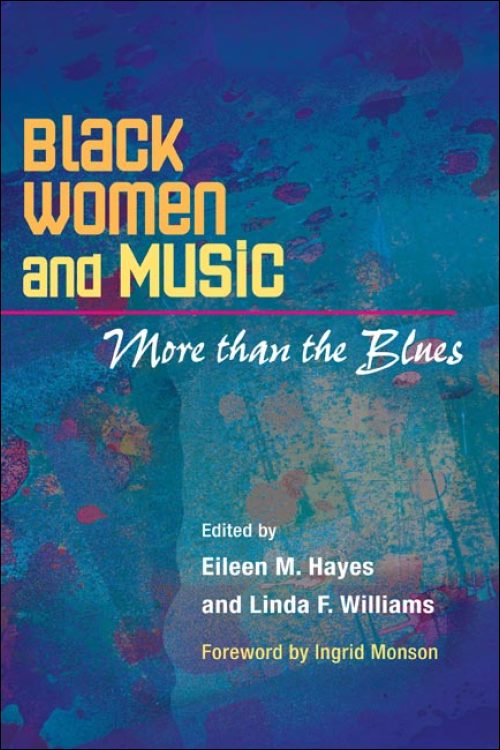
eds. Eileen M. Hayes and Linda F. Williams
This collection is the first interdisciplinary volume to examine black women’s negotiation of race and gender in African American music. Contributors address black women’s activity in musical arenas that pre- and postdate the emergence of the vaudeville blues singers of the 1920s. Throughout, the authors illustrate black women’s advocacy of themselves as blacks and as women in music. Feminist? Black feminist? The editors take care to stress that each term warrants interrogation: "Black women can and have forged, often, but not always--and not everywhere the same across time--identities that are supple enough to accommodate a sense of female empowerment through 'musicking' in tandem with their sensitivities to black racial allegiances."
Individual essays concern the experiences of black women in classical music and in contemporary blues, the history of black female gospel-inflected voices in the Broadway musical, and "hip-hop feminism" and its complications. Focusing on under-examined contexts, authors introduce readers to the work of a prominent gospel announcer, women’s music festivals (predominantly lesbian), and to women’s involvement in an early avant-garde black music collective. In contradistinction to a compilation of biographies, this volume critically illuminates themes of black authenticity, sexual politics, access, racial uplift through music, and the challenges of writing (black) feminist biography. Black Women and Music is a strong reminder that black women have been and are both social actors and artists contributing to African American thought.
Learn more about Black Women and Music at University of Illinois Press
